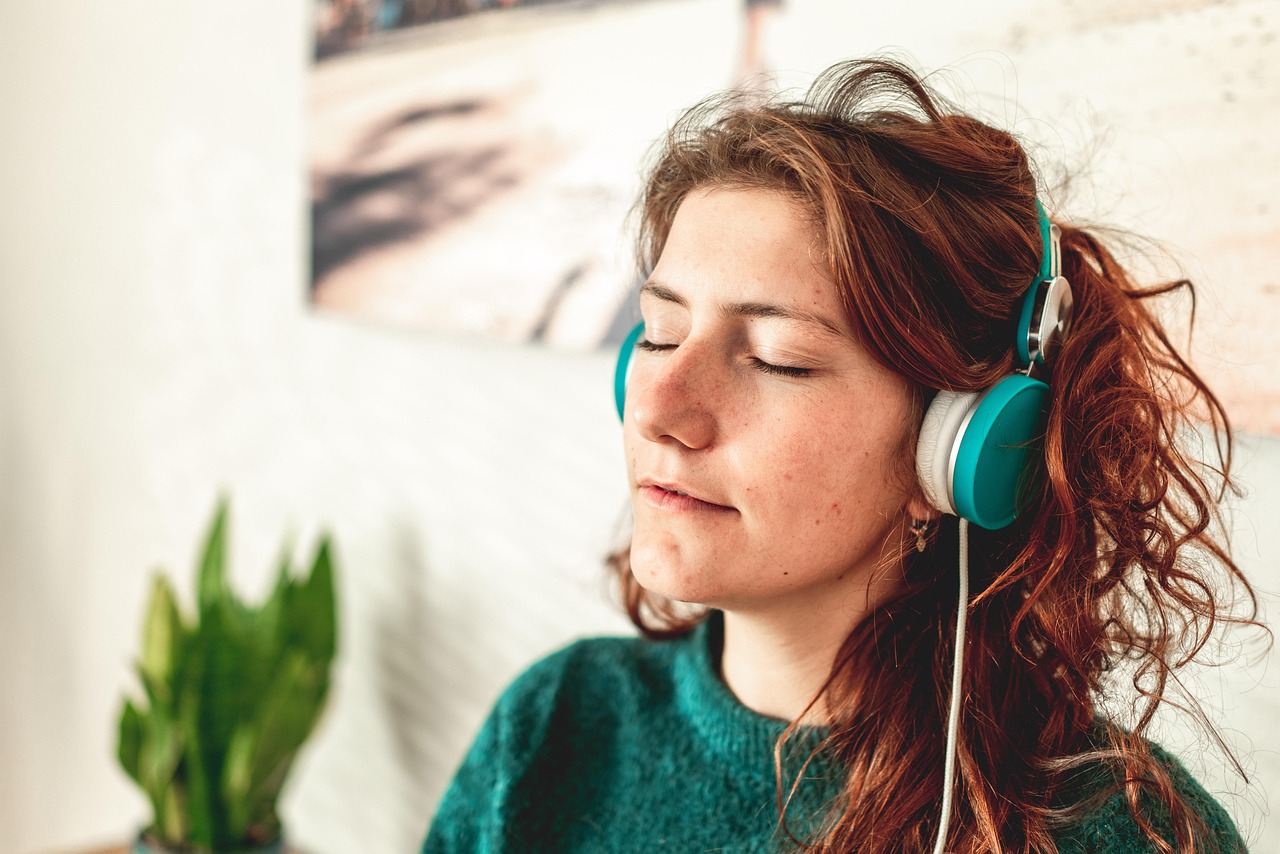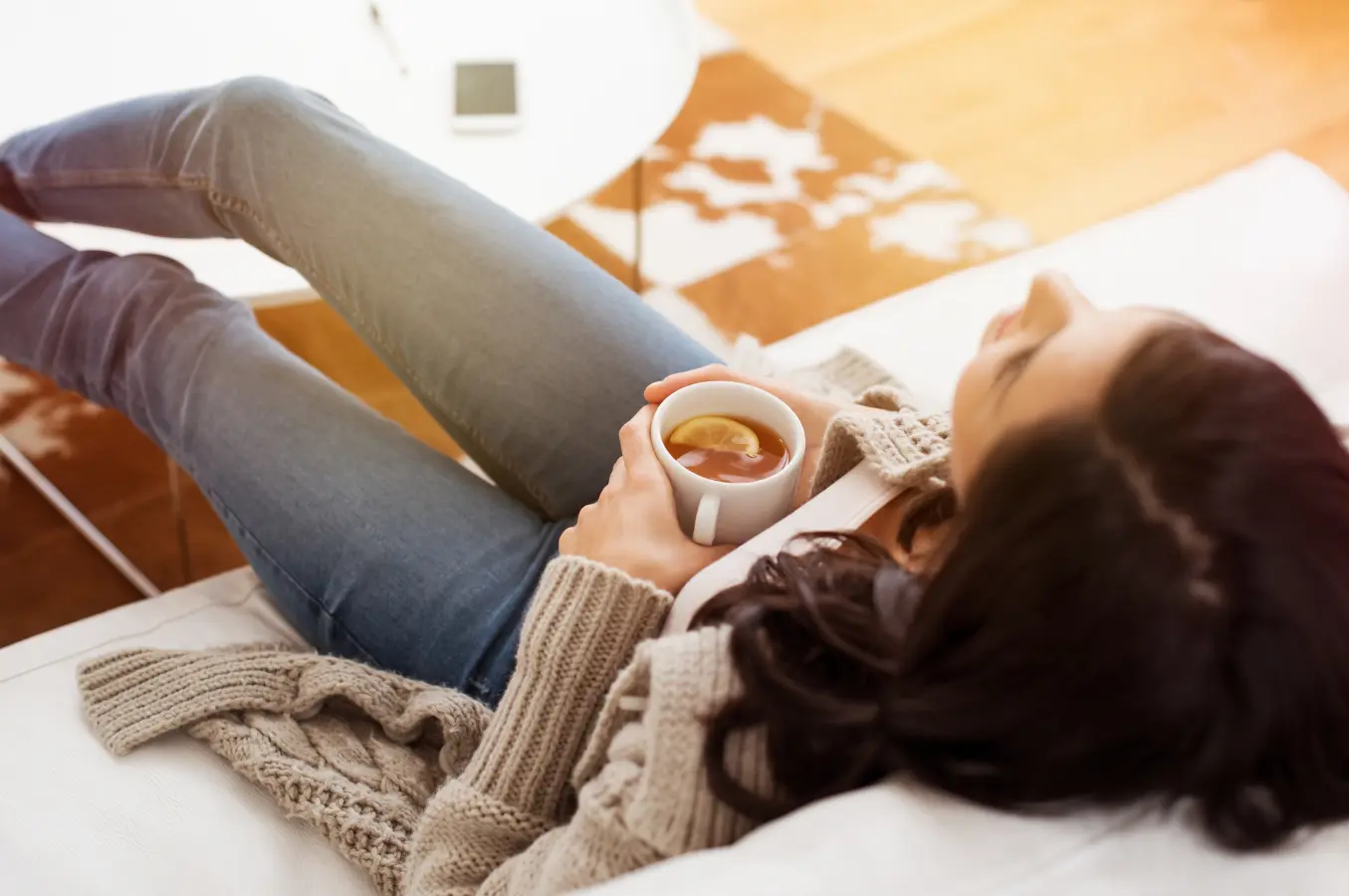Cold and flu season is here, and the goal isn’t to “supercharge” your immune system – it’s to support it with habits that steadily improve your odds. This article cuts through quick-fix claims and sticks to what’s actually supported by evidence (you’ll see research linked where it counts).
No spoilers: the plan unfolds step by step, with clear cautions and a few myths retired along the way. Read it through once, then decide what to start tonight and what to build on over the next couple of weeks.
ID 98284281 ©Evgenyatamanenko | Dreamstime.com
Before we dive in, it’s worth reframing what “stronger immunity” really means.
Why “strengthening” means balance- not a magic “boost”
Your immune system isn’t a single switch you can flip. It’s a network of tissues and cells with two broad arms: a fast, non-specific innate response and a slower, learning adaptive response. Diet and lifestyle can shift immune activity within days.
In a small but tightly controlled Nature Medicine trial, alternating two-week stints of vegan vs. ketogenic eating produced distinct immune signatures – plant-based skewed innate pathways, while keto leaned adaptive – illustrating how food patterns can rewire immunity quickly (interesting, but not a license to yo-yo diet).
The Fall Routine That Actually Keeps You Healthy – Science-Backed
Sleep: your biggest, simplest win
ID 131282466 ©Mashiki | Dreamstime.com
If you only change one thing, make it sleep. Short sleep meaningfully raises your chance of catching a virus after exposure, and it can blunt vaccine antibody responses.
Classic viral-challenge research shows sleeping under 7 hours made adults far more likely to develop a cold than those getting 8+ hours. Newer meta-analyses confirm that insufficient sleep reduces vaccine-induced immunity, so aim for good sleep, especially in the days before and after any shot.
Sleep is essential for a healthy and long life – it is actually part of the 8 habits revealed by a massive study that could add years to your life!
Moreover, it is important to have a night routine for longevity in place – I wrote about one, backed by science, here.
Make it work this week: keep a steady schedule, dim screens an hour before bed, and keep your bedroom cool and dark. Prioritize 7–9 hours consistently; quality matters as much as quantity.
Stress: the hidden immune saboteur
Photo source: Pixabay
Chronic stress shifts hormones like cortisol and adrenaline in ways that dampen antiviral defenses.
Human studies – including viral-challenge designs – show a dose-response link between ongoing stress and catching colds.
The fixes aren’t exotic: 10–15 minutes of breathwork or mindfulness, light daily movement, nature time, and stronger social connection all help; combine these habits with sleep for compounding benefits. I presented several habits that help preserve our mental health here.
Move your body – consistently, not obsessively
Regular, moderate activity enhances surveillance by immune cells, supports sleep, and helps manage stress.
The relationship follows a “J-curve”: moderate exercise tends to lower upper-respiratory infections, while very intense or prolonged training without recovery can temporarily increase susceptibility.(PubMed)
Translation: a brisk walk most days + two short strength sessions beats occasional “hero” workouts.
Plus, walks in nature – and awe walks – help more than you’d think!
Eat like your immune cells are listening
No single “superfood” prevents a cold, but diet patterns matter. A Mediterranean-leaning plate – colorful vegetables and fruit, legumes, whole grains, nuts, olive oil, plus fish more often than processed meat – is linked to lower inflammatory markers such as IL-6. That’s a strong base year-round, with room for your cultural favorites.
Here I would say this: eating more natural foods – less processed (I love meat, so I am not a vegetarian) will always be healthier than eating processed foods.
What to emphasize in autumn:
- Color & variety: citrus, red peppers, leafy greens, broccoli, pumpkins/carrots (vitamin C, carotenoids, polyphenols).
- Protein with micronutrients: legumes, eggs, yogurt, fish, or lean poultry (zinc, B-vitamins).
- Fermented foods: yogurt/kefir or fermented veg for gut–immune crosstalk; probiotic foods and some probiotic supplements show modest reductions in URTIs in several trials (strain-specific).
What to limit: ultra-processed, high-sugar patterns. They displace nutrients and are associated with low-grade inflammation that doesn’t help you in cold/flu season.
Hydration helps your first line of defense
Well-hydrated mucous membranes in the nose and throat do a better job trapping and clearing microbes.
Keep a steady intake of water; herbal teas, soups, and broths are especially nice when it’s cold out. Hydration isn’t a cure, but it supports the frontline barriers you rely on all day.
Cleaner air and hand hygiene still matter (a lot)
Reducing the dose of virus you encounter helps your immune system win more often. Two low-effort ways:
- Hand hygiene: Wash with soap and water for 20 seconds – especially after public transport or before eating. Interventions promoting handwashing reduce acute respiratory infections across settings; alcohol hand rub (≥60%) helps when sinks aren’t handy.
- Cleaner indoor air: Outdoors beats indoors when possible. Inside, better ventilation lowers airborne viral concentrations and exposure – open a window, use exhaust fans, consider HEPA filtration in stuffy rooms. Public-health guidance classifies ventilation as a core prevention strategy.
A quick word on humidifiers
Dry indoor air can irritate airways; some evidence suggests keeping ~40–60% relative humidity may be more comfortable and might reduce transmission in certain contexts.
That said, findings are mixed, and humidity isn’t a stand-alone control. If you use a machine, prefer cool-mist, clean it frequently, and use distilled water to avoid mold or mineral dust.
Supplements: what helps a bit, what’s mixed, and what to skip
Supplements support a solid routine; they don’t replace it. Always check with your clinician if you’re pregnant, on meds, or managing chronic disease.
Vitamin C: Regular use can slightly shorten cold duration; it doesn’t prevent colds for most people. Food-first is great; if supplementing, many aim for ~250–500 mg/day.
Zinc: Evidence is mixed. Starting lozenges within 24 hours of symptoms may trim duration by roughly a day or two in some studies. Avoid intranasal zinc – it’s been linked to loss of smell and was withdrawn from the market. Keep long-term intake under 40 mg/day unless supervised.
Vitamin D: The story evolved. Earlier analyses suggested a small reduction in acute respiratory infections with daily vitamin D, especially in people who were deficient. An updated 2025 meta-analysis (nearly 50 trials) found no significant preventive effect overall.
Bottom line: test, don’t guess; treat deficiency for bone/muscle health, but don’t rely on vitamin D to prevent colds. (Note: blood levels are measured in ng/mL, not mg/dL.) Also, make sure you talk to your doctor – I needed vitamin D supplements after I received the blood work results.
Probiotics: Some meta-analyses suggest fewer URTIs and shorter duration, but effects are strain-specific and modest. Foods with live cultures are an easy, low-risk start.
Safety notes: Skip “mega-dosing.” Mind interactions (e.g., zinc and copper long-term). And do not use intranasal zinc due to anosmia risk. Talk first with your doctor.
ID 84638181 ©Rido | Dreamstime.com
Habits that quietly undermine immunity (fix these first)
- Smoking: Damages respiratory defenses and increases respiratory infections; even secondhand smoke raises the risk for kids. Quitting or reducing exposure helps at any age.
- Alcohol: Heavy/chronic intake dysregulates both innate and adaptive immunity. If you drink, keep it modest and plan alcohol-free days weekly.
- Weight swings: Obesity is linked with impaired immune responses, but crash dieting can also suppress immunity. Favor sustainable changes anchored in whole foods, movement, and sleep.
Myth-busting: “Cold air gives you a cold”
Cold weather itself isn’t the virus. Winter spikes are mainly about indoor crowding and dry air that favor transmission and irritate airways. That’s why hand hygiene and cleaner indoor air work across seasons.
Special considerations
- Older adults: prioritize adequate protein, keep strength/balance work, and review vitamin D status and vaccine plans with your clinician. Social connection matters too.
- Pregnancy: stick with prenatal vitamins as prescribed; favor sleep, gentle activity, stress care, and safe food handling; clear supplements with your OB.
- Children: protect sleep, offer a varied, nutrient-dense diet, encourage active play/outdoor time, teach handwashing, and keep vaccinations up to date.
When to call the doctor
Seek care promptly for emergency warning signs such as difficulty breathing, chest pain or pressure, confusion, seizures, severe weakness or unsteadiness, not urinating, bluish lips/skin, or fever/cough that improve and then return or worsen. High, persistent fever and symptoms in people at higher risk (older adults, pregnancy, chronic disease) also deserve a quick call.
A simple two-week “autumn reset” you can actually do
- Days 1–3: lock in sleep (bedtime/wake time, dark, cool room). Add a 10-minute wind-down and one brief stress-relief practice you’ll stick with.
- Days 4–7: 30–40 minutes of brisk walking most days; two short strength sessions. Keep one fermented food daily. Stock citrus, peppers, leafy greens, legumes, and olive oil.
- Days 8–10: continue the hand hygiene habits + “open the window” moments; place sanitizer by the door and in your bag. Consider a HEPA purifier for a poorly ventilated room
- Days 11–14: review supplements: food-first; vitamin C optional; zinc only if you get sick (lozenges, not nasal); vitamin D only if you’ve tested low or your clinician advises.
Vaccination
If you’re vaccine-hesitant, you can still get huge mileage from everything above: sleep, stress care, nutrition, movement, hygiene, and cleaner air.
That said, vaccines remain a high-impact layer for reducing severe illness and complications across populations. For the 2025–26 flu season, public-health guidance continues to recommend annual influenza vaccination for everyone 6 months and older who doesn’t have a contraindication, with product nuances by age and risk.
Effectiveness varies by season/strain and person-to-person, but at the population level, flu shots regularly reduce doctor visits, hospitalizations, and complications. Discuss your personal pros/cons with your clinician, especially if you’re in a higher-risk group.
Medical disclaimer:
This article is educational. It’s not medical advice. If you’re pregnant, immunocompromised, have chronic conditions, or take regular meds, talk to your clinician before changing your routine or starting supplements.
As a conclusion
There’s no instant “boost,” but the stack – sleep, stress care, nutrient-dense food, hygiene, cleaner air, and selective supplements – improves your odds this season. If you choose to add vaccination, it’s one more strong layer – kept last here so you get the whole plan first.
I am recommending you to read these articles too – for more ways that are EASY to implement and can make your life better (and longer):
- Scientists Reveal the Unexpected Longevity Habit That Costs Nothing
- Scientists Say This Overlooked Habit Could Add Years to Your Life
- Scientists Say People With This Mindset Are Far More Likely to Reach Age 90+
- Add Decades, Not Just Years: 8 Habits That Could Add 20–25 Years to Your Life (Backed by a Massive Study)
- Want a Longer, Happier Life? Scientists Say This 1-Hour Habit Could Be the Key
- Want to Live Longer? Studies Say These Mental Habits May Help (No Sweat Required)
- Eat Earlier, Live Longer? What a New Study Says About Breakfast Timing, Aging, and Longevity
- Simple daily habits for a healthier mind
- How to De-Clutter Your Mind, Backed by Science
- The Personality Traits That Can Help You Live Longer (and Be Happier)
- How to Build Real Self-Esteem That Lasts (Backed by Science, Not Buzzwords)
- 17 Signs You Are Happier Than You Think
- 11 Signs You Are More Intelligent Than You Think
- Things People With High Self-Esteem Rarely Do
- How to Reduce Sugar Intake Naturally
- Science-Backed Benefits of Eating Walnuts (and How Much You Should Actually Eat)
- Things I Didn’t Expect to Happen When I Turned 40 (But Totally Did)
- 15 Signs You’re More Emotionally Intelligent Than You Think – Backed by Science
Cold & Flu Immunity FAQs (Science-Backed)
What’s the fastest way to support immunity right now?
There’s no instant “boost,” but a quick win stack is: sleep (aim for 7–9 hours), wash hands properly, improve indoor air (fresh air/filtration), plus light movement and a brief stress reset. Short sleep raises cold risk; handwashing and ventilation lower exposure.
Does vitamin C prevent colds or just shorten them?
Mostly the latter. Regular vitamin C modestly shortens cold duration (single-digit percent range in adults) but doesn’t prevent colds for most people. Food-first is fine; supplements are optional.
Do zinc lozenges really work (and which should I avoid)?
Evidence is mixed. Lozenges started within 24 hours may shorten symptoms a bit for some people, but prevention benefits are unclear. Avoid intranasal zinc—it’s been linked to loss of smell and was the subject of FDA warnings.
Should I take vitamin D in autumn/winter?
Test, don’t guess. Correct deficiency for bone/muscle health, but the latest large meta-analysis found no significant overall prevention of acute respiratory infections from routine vitamin D supplements. Discuss your result-based plan with your clinician.
How much sleep do I need for immunity?
Most adults need 7–9 hours. Sleeping under ~7 hours increased cold risk in a controlled viral-exposure study, and short sleep around vaccination can blunt antibody responses. Prioritize consistent bed/wake times and a dark, cool room.
Do humidifiers help with colds?
They can improve comfort in dry indoor air, and keeping ~40–60% RH is often cited as a sweet spot—but evidence for preventing infections is mixed. If you use one, prefer cool-mist, clean often, and avoid over-humidifying.
Is overtraining bad for my immune system?
Generally, moderate activity supports immune defenses, while very intense or prolonged training without recovery can transiently raise susceptibility (the classic “J-curve” / “open-window” idea). Build gradually and recover well – consistency beats hero workouts.
How can I support immunity without supplements?
Focus on the stack: adequate sleep, steady stress care, nutrient-dense meals, hand hygiene, cleaner indoor air, and regular movement. These together lower risk far more reliably than any single pill.







